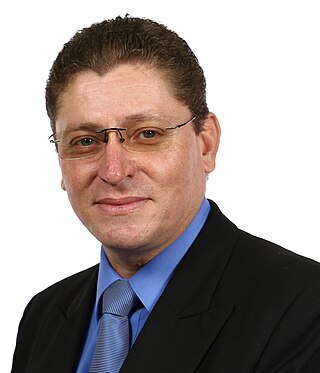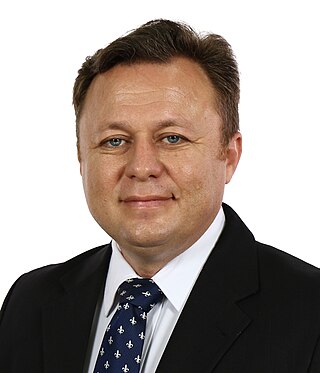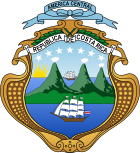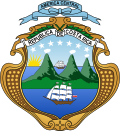
The politics of Costa Rica take place in a framework of a presidential, representative democratic republic, with a multi-party system. Executive power is exercised by the president and their cabinet, and the President of Costa Rica is both the head of state and head of government. Legislative power is vested in the Legislative Assembly. The president and 57 Legislative Assembly deputies are elected for four-year terms. The judiciary operates independent of the executive and the legislature but remains involved in the political process. Costa Rica is a republic with a strong system of constitutional checks and balances. Voting is compulsory in Costa Rica but it is not enforced.

Óscar Arias Sánchez is a Costa Rican activist and Nobel Peace Prize laureate. He was President of Costa Rica from 1986 to 1990 and from 2006 to 2010. He received the Nobel Peace Prize in 1987 for his efforts to end the Central American crisis. He was also a recipient of the Albert Schweitzer Prize for Humanitarianism and a trustee of Economists for Peace and Security. In 2003, he was elected to the board of directors of the International Criminal Court's Trust Fund for Victims.

The Supreme Justice Tribunal is the highest court of law in the Bolivarian Republic of Venezuela and is the head of the judicial branch. As the independence of the Venezuelan judiciary under the regime of Nicolas Maduro is questioned, there have recently been many disputes as to whether this court is legitimate.

Club Sport Cartaginés Deportiva S.A., also known as Cartaginés, is a Costa Rican football club, that currently plays in the Liga de Fútbol de Primera División, the top division of Costa Rican football league system. Cartaginés' home venue is Estadio Jose Rafael Fello Meza, located in Barrio Asis of Cartago.

Lesbian, gay, bisexual, and transgender (LGBT) rights in Costa Rica have evolved significantly in the past decades. Same-sex sexual relations have been legal since 1971. In January 2018, the Inter-American Court of Human Rights made mandatory the approbation of same-sex marriage, adoption for same-sex couples and the removal of people's sex from all Costa Rican ID cards issued since October 2018. The Costa Rican Government announced that it would apply the rulings in the following months. In August 2018, the Costa Rican Supreme Court ruled against the country's same-sex marriage ban, and gave the Legislative Assembly 18 months to reform the law accordingly, otherwise the ban would be abolished automatically. Same-sex marriage became legal on 26 May 2020.
Héctor Marchena de la O is a former Costa Rican football player who used to play for Cartaginés and Herediano.
Same-sex marriage in Costa Rica has been legal since May 26, 2020 as a result of a ruling by the Supreme Court of Justice. Costa Rica was the first country in Central America to recognize and perform same-sex marriages.

Christianity is the predominant religion in Costa Rica, with Roman Catholicism being its largest denomination. Roman Catholicism is also the state religion, but the government generally upholds people's religious freedom in practice.
The history of the Jews in Costa Rica dates back to the Spanish conquest with the arrival of many Sephardic converts known as Marranos who escaped from the Spanish Inquisition and settled mainly in the city of Cartago and its surroundings. They hid their Jewish past by all means, making even their descendants have no idea of it.
Events in the year 2013 in Costa Rica.

A constitutional referendum, officially referred to as the referendum to lower the age of criminal responsibility, was held in Uruguay on 26 October 2014, alongside general elections. Voters were asked whether Article 43 of the Constitution should be amended to lower the age of criminal responsibility from 18 to 16. The proposal was rejected by 53% of voters.

The Constitution of Costa Rica is the supreme law of Costa Rica. At the end of the 1948 Costa Rican Civil War, José Figueres Ferrer oversaw the Costa Rican Constitutional Assembly, which drafted the document. It was approved on 1949 November 7. Several older constitutions had been in effect starting from 1812, with the most recent former constitution ratified in 1871. The Costa Rican Constitution is remarkable in that in its Article 12 abolished the Costa Rican military, making it the second nation after Japan to do so by law. Another unusual clause is an amendment asserting the right to live in a healthy natural environment.

Renewable energy in Costa Rica supplied about 98.1% of the electrical energy output for the entire nation in 2016. Fossil fuel energy consumption in Costa Rica was 49.48 as of 2014, with demand for oil increasing in recent years. In 2014, 99% of its electrical energy was derived from renewable energy sources, about 80% of which from hydroelectric power. For the first 75 days of 2015, 100% of its electrical energy was derived from renewable energy sources and in mid 2016 that feat was accomplished for 110 consecutive days despite suboptimal weather conditions.
Same-sex marriage has been legal in Querétaro since 13 November 2021. On 22 September 2021, the state Congress passed a law legalizing same-sex marriage in Querétaro. The law was published in the state's official gazette on 12 November, and took effect the following day. Previously, same-sex couples could marry in eight of the eighteen municipalities of Querétaro, comprising 60% of the state's population, despite a state law prohibiting same-sex marriage.

The 2017 Venezuelan referendum was held in Venezuela on 16 July 2017. The referendum was called by the National Assembly in response to the constitutional crisis and President Nicolás Maduro's plans for a Constituent Assembly. The referendum is an act of civil disobedience in the context of the application of Articles 333 and 350 of the Venezuelan constitution, with the articles calling for Venezuelans to "disown any regime ... that violates democratic values", especially since the National Electoral Council and the Supreme Tribunal of Justice are not recognized in the referendum. The opposition Democratic Unity Roundtable (MUD) announced that there would be 2,030 areas for the popular consultation nationwide to serve more than 19 million voters.
A mining referendum is a direct and universal vote in which an entire electorate is invited to vote on a mining proposal. Mining referendums have been held in Tambo Grande, Peru in 2002, Esquel, Argentina in 2003, and Cuenca, Ecuador in 2021. In each of the three cases the local community rejected the establishment of new mines in their territory.

Erick Rodríguez Steller is a Costa Rican politician, deputy in Costa Rica in the 2018-2022 period. He was elected by the National Integration Party during Juan Diego Castro Fernández candidacy, but then declared himself an independent deputy, a month before taking office soon after Castro did the same. Later, he would announce his incorporation into the New Generation Party. Steller was one of the only seven deputies who refused to acknowledge the triumph of the US candidate Joe Biden, claiming "that there was suspicion of fraud".

Dragos Dolanescu Valenciano, known as Dragoș Dolănescu, is a Costa Rican psychologist and politician. Dolanescu is an independent congressman in the third year of the 2018-2022 legislative period. He gained his seat at the Legislative Assembly running in the Alajuela province race for the Partido Republicano Social Cristiano party (PRSC), which at the time he was also president of the organization. He resigned to PRSC after clashing with senior members of the party, who accused him of fund mismanagement in the 2020 municipal elections in retaliation for his resignation.

The United States versus Costa Rica football (soccer) match was held on 22 March 2013 at the Dick's Sporting Goods Park in Commerce City, Colorado. It was part of the second matchday of the final qualification round in CONCACAF for the 2014 FIFA World Cup.

The 2022 Mexican presidential recall election, officially called the Recall Process of the President of the Republic elected for the constitutional period 2018–2024 by the electoral organization Instituto Nacional Electoral (INE), was held in Mexico on 10 April 2022 to decide if the incumbent President Andrés Manuel López Obrador should stay in office and serve his full six-year term.














